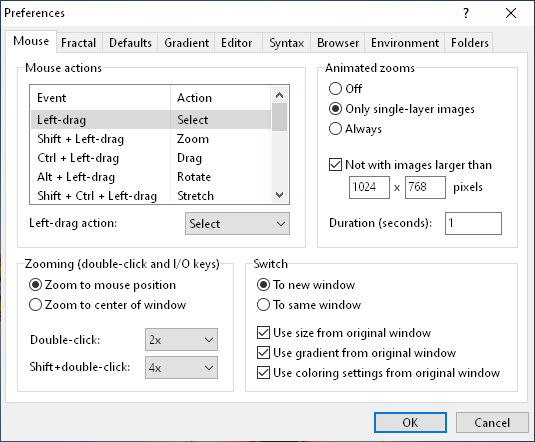

You can find a module to do anything you want.
Ultra fractal programming language archive#
Like npm for Node.js, Perl has a vibrant development community in CPAN, with a vast archive of Perl modules. We can easily invoke a Perl daemon to avoid spending hours working on C and reduce security flaws. It can create Unix daemons or server processes that run in the background. As a result, it excels at pipes, file slurping, inter-process communication, and other geeky tasks. It can serve as a wrapper around Unix tools and is fully integrated into OS semantics. Be it a regex-based approach or otherwise, Perl is excellent for logfile analysis, text manipulation, in-place editing of files, and scouring structured text files for specific field values. Perl’s primary strength is in text processing. It is open source and free to contribute to. Perl is a high-level, interpreted language. It’s far from dead, and is still very relevant to software engineering today. But Perl is more than just scripting.īut from the amount of talk about Perl on Reddit or Stack Overflow, you might think it’s dead. You may have used it for occasional sys admin tasks, in your tool chain, or to enhance some shell scripts that needed more gas. The language was created in 1987 as a general purpose UNIX scripting language, but has undergone many changes since then (even spawning another programming language, Raku).

I am pretty certain you have also used Perl more than once, perhaps several times. If you love UNIX/Linux/BSD like me, then you have definitely learnt Perl and programmed in it.


 0 kommentar(er)
0 kommentar(er)
